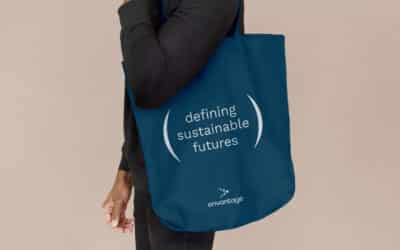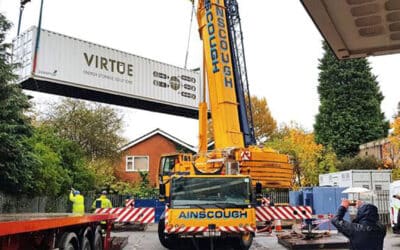Manchester researchers are to undertake a project to inform the future of bioenergy and carbon capture and storage (BECCS) in a project commissioned by the Industrial Decarbonisation Research and Innovation Centre (IDRIC).
As industrial decarbonisation progresses, and carbon capture and storage (CCS) infrastructure comes online, the wider role of the regional clusters in delivering net zero will come into sharper focus, including the potential to remove carbon dioxide from the atmosphere.
‘Integrated Assessment of BECCS in context: environmental, policy, regulatory and social factors’, a cross disciplinary research project led by Dr Clair Gough from Tyndall Manchester, who is a senior research fellow at Manchester University’s Mechanical and Aeronautical Engineering Division, will look at potential BECCS facilities within the North West industrial cluster. Effective use of BECCS depends on a better understanding of many factors across its complex supply chains. This project will investigate what configurations minimise the emissions associated with transporting biomass, CO2 and energy along the supply chain; what are the policy gaps and uncertainties associated with deploying, regulating and governing BECCS, and how local communities view the development of BECCS in their region.
The research will be conducted through a combination of linked desk-based and empirical methods which will bring together spatial modelling, carbon accounting, policy mapping, interviews with stakeholders and a community workshop.
Gough, senior research fellow at Tyndall, explained: “This project is all about mapping the non-technical challenges to BECCS deployment. By taking a systems-based approach and looking at environmental, policy, regulatory and social factors, this project will identify obstacles, and help pinpoint the solutions for BECCS to play its part in reaching Net Zero in the UK.”
The project is one of 20 that will be supported as part of IDRIC’s Wave 2, £6m funding to accelerate decarbonisation of industry. Designed to aid industrial decarbonisation in Scotland, Northwest England, Teesside, Solent, Black Country, Humber, and South Wales, this second wave will fund 20 projects across 14 institutions covering a wide range of technological, environmental, economic, skills and social aspects of decarbonisation.
Manchester’s Dr Lin Ma, a research fellow based in the Department of Chemical Engineering, has also been awarded funding by IDRIC’s second wave. Working in collaboration with BGS, Heriot-Watt University and Centrica, she will explore hydrogen storage near industrial clusters using porous rock storage with research in the Humber, Northwest, South Wales and Teesside.
Manchester, University’s energy experts are committed to delivering an equitable and prosperous net-zero energy future. By matching science and engineering with social science, economics, politics and the arts, the university’s community of 600+ experts addresses the entire lifecycle of each energy challenge, creating innovative and enduring solutions to make a difference to the lives of people around the globe. This enables the university’s research community to develop pathways to ensure a low carbon energy transition that will also drive jobs, prosperity, resilience and equality.












